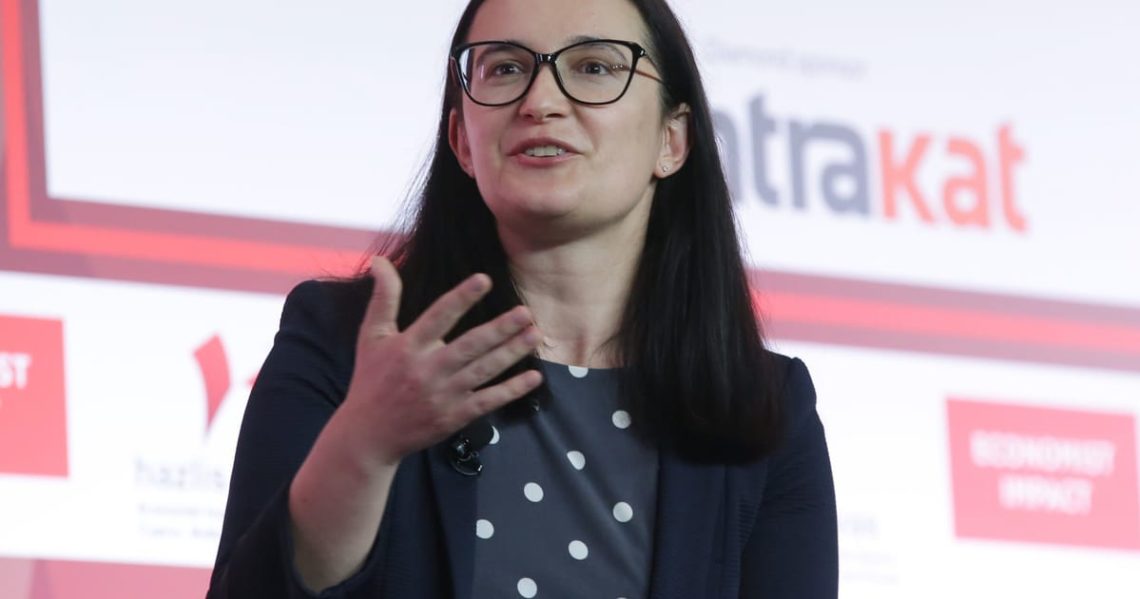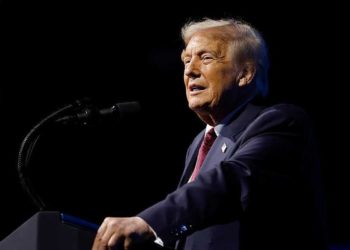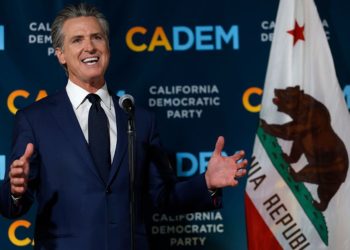Moldova hopes to use a major EU summit to cement its path to joining the bloc, even as a growing row over Ukraine’s membership threatens to slow its progress.
The push comes as European Commission President Ursula von der Leyen and European Council President António Costa arrive in the Moldovan capital, Chișinău, on Friday to signal their support for the country’s accession. The problem is that the Eastern European nation’s application is being processed simultaneously alongside that of Kyiv — which Hungary’s Kremlin-friendly Prime Minister Viktor Orbán has vowed to veto.
Speaking in an interview with POLITICO, Moldova’s Deputy Prime Minister and European integration chief, Cristina Gherasimov, said that any delays to the process would cost the EU “credibility with countries that share the same values and strive for strengthening rather than weakening democracy.”
“We risk providing unnecessary arguments for Russian propaganda that the EU is not interested in enlargement; that the EU does not care about countries like Moldova; and that there is no window of opportunity,” she said. “Enlargement is a merit-based process, and we very much hope to see the next phase unlocked as soon as possible.”
Gherasimov added that Ukraine’s accession to the EU remains essential for the security of the entire continent.
Orbán — who has consistently opposed EU support for Kyiv and has nurtured closer ties with Russia — claims 95 percent of voters in a referendum in Hungary last month opposed Ukraine joining the EU. Local opposition and observers, however, say the poll had a historically low turnout and was vulnerable to manipulation.
Budapest has pledged to deny Kyiv the unanimous support it needs to become an EU member, despite Ukraine’s substantial progress on reforms while fighting to defend its territory against Russia.
Earlier this week, the Commission’s enlargement spokesperson, Guillaume Mercier, said Brussels would not entertain the question of “decoupling” Moldova and Ukraine’s bids to allow the former to progress. “This is really a decision to be taken by the member states. From our side, it’s clear we support both Moldova and Ukraine in their reform agenda.”
Denmark’s Minister of European Affairs, Marie Bjerre, whose country took over the rotating presidency of the Council of the EU this week, said Thursday that the goal remains to open detailed accession talks with both countries. “I think it’s too soon to speculate [about] any alternatives,” she said.
That creates a potential impasse, especially given the reluctance in Brussels to leave Kyiv behind. Meanwhile, for the EU and Chișinău, Friday’s summit aims to send a strong political message ahead of a critical nationwide vote on Sept. 28, which the Kremlin has been trying to sway.
“We see that Russia is investing unprecedented resources to interfere in the parliamentary elections,” EU Enlargement Commissioner Marta Kos told POLITICO. “Moscow sees Moldova as a strategic piece to destabilize southern Ukraine.”
Moldovan authorities reported widespread disinformation, vote-buying and hybrid tactics during last October’s referendum on membership in the bloc, which was approved with 50.4 percent support. But although pro-EU President Maia Sandu subsequently managed to secure a second term in office, control of the parliament and the government will be critical in determining the country’s future course.
The EU is already providing billions of euros to bolster Moldova’s resilience against Russian hybrid tactics, as well as to support the economy and bring down energy bills. The Friday summit “shows the importance Europe attaches to stand by Moldova’s side in these difficult times and to support it on its path to EU membership,” Kos added.
According to Siegfried Mureșan, a Romanian MEP who leads the European Parliament’s delegation to Moldova, Chișinău faces fewer practical challenges to joining the EU than Kyiv.
“It’s a smaller country that’s easier to integrate,” he said, “but the EU perspective needs to be made credible to all EU candidate countries. So the message needs to be clear: As soon as the criteria are met, a candidate country can join.”
Gabriel Gavin reported from Brussels, Belgium. Nicholas Vinocur reported from Aarhus, Denmark.
The post Moldova pushes for EU entry assurances as Hungary blocks Ukraine appeared first on Politico.




